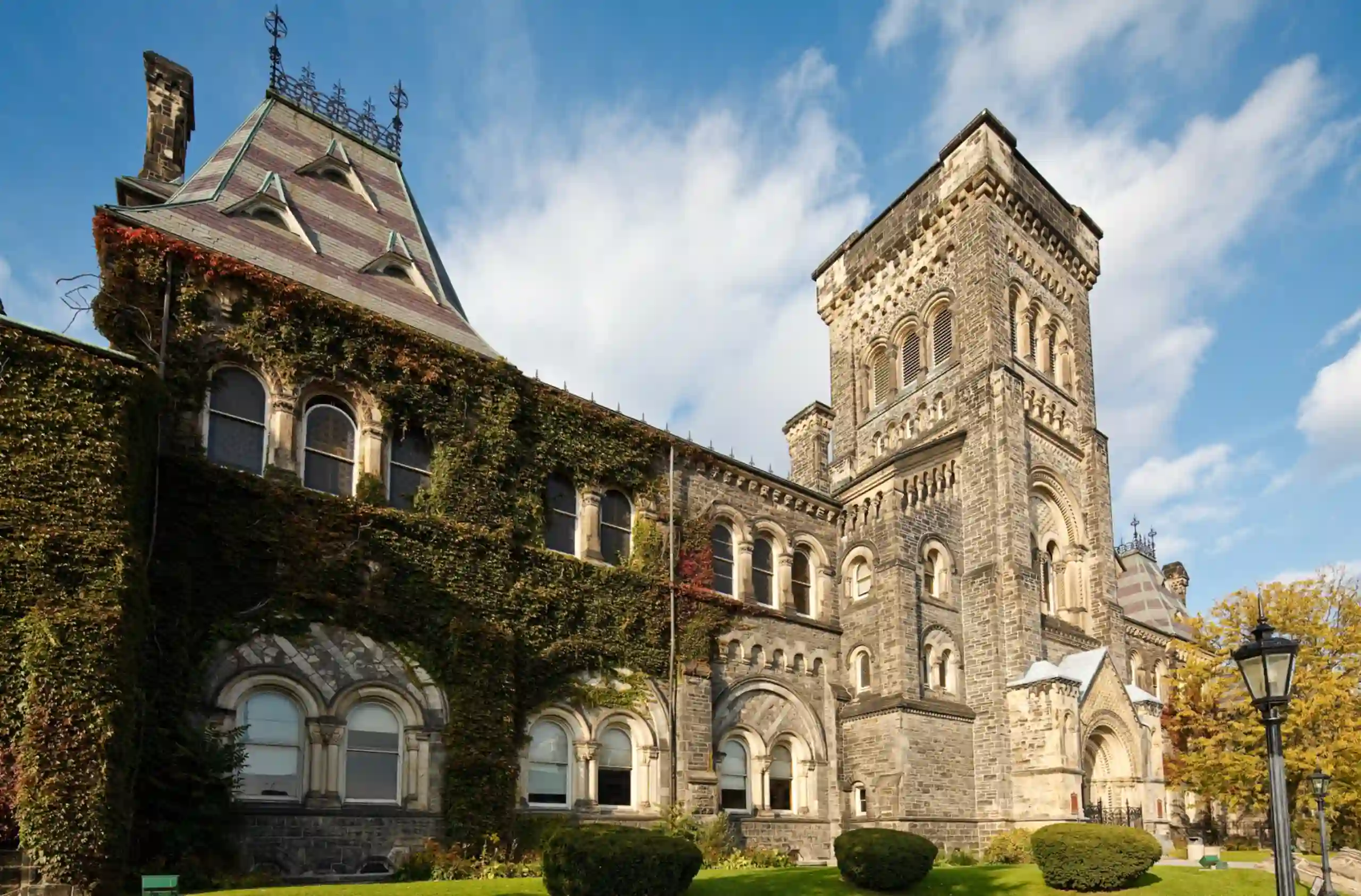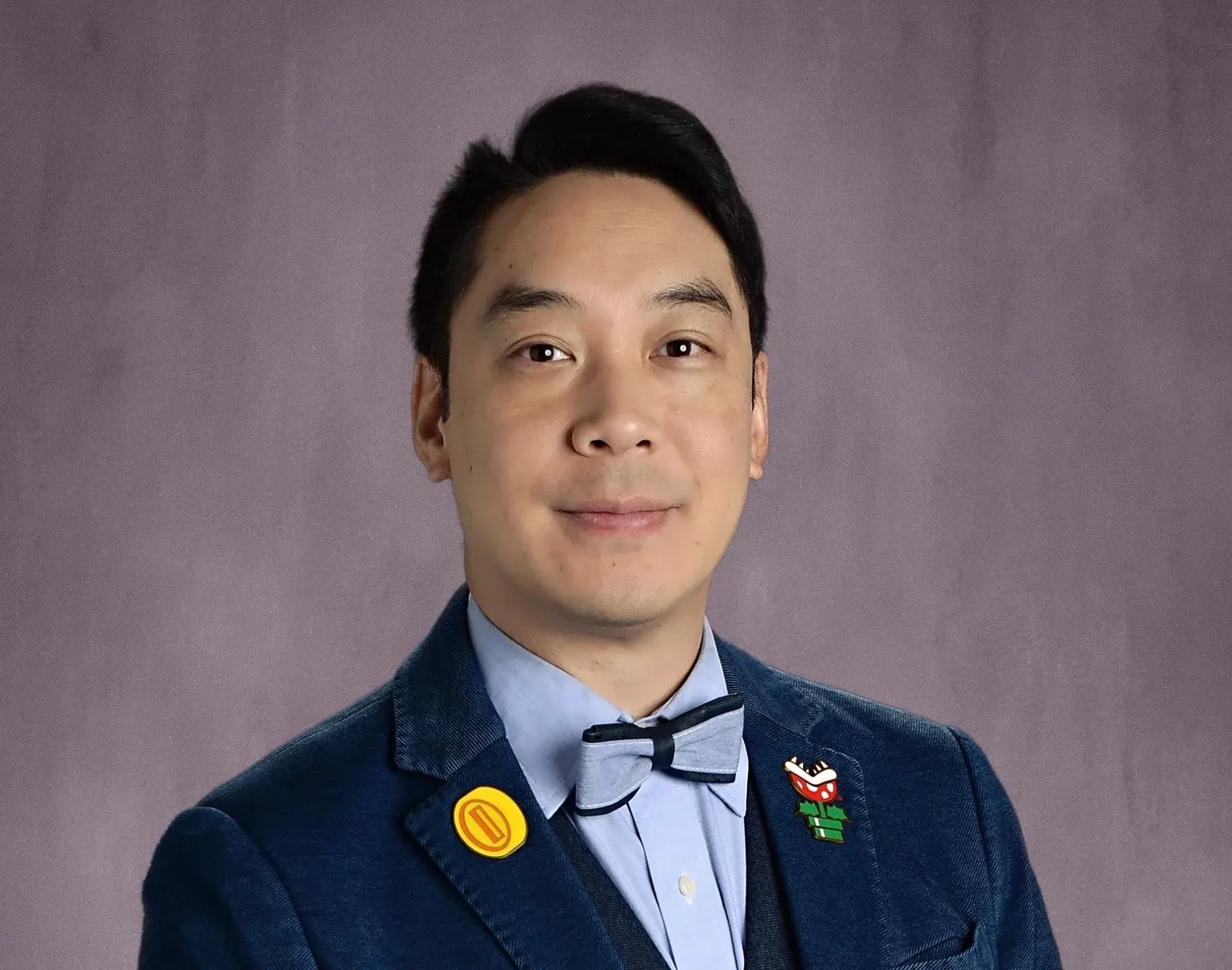
Getting admitted to U of T requires meeting specific academic requirements and standing out in a large pool of applicants. This comprehensive guide covers undergraduate and graduate admissions, including program prerequisites, application processes, deadlines, and tips to strengthen your application. We’ll break down requirements for various faculties/programs at the undergraduate level, and also outline what is needed for competitive professional and graduate programs (Law, Medicine, MBA, Engineering, etc.). Use the tables and advice below to prepare a strong application for U of T’s next intake.
Table: Comparison of Admission Requirements by Undergraduate Program (St. George campus)
Below is a summary of different U of T (St. George) programs, their key Grade 12 prerequisites, typical competitive grade ranges, and any supplemental application components:
Notes: All programs require English (or native language equivalent) in senior year. “Grade Range” indicates the typical grade average of admitted students (“mid-80s” = ~85%, “high-80s” = ~88-89%, etc.). Meeting the minimum does not guarantee admission if the program is competitive. Also, some programs (like Co-op management at UTSC or Computer Science progression after first year) have additional progression requirements once you are enrolled, but the table above covers admission to first year.
1. Undergraduate Admission Requirements
1.1 General Admission Requirements (Domestic & International)
Domestic (Canadian) Applicants
All applicants must have a high school diploma with strong academic results in Grade 12 courses. For Ontario high school students, this means completing the Ontario Secondary School Diploma (OSSD) with six Grade 12 U or M courses, including Grade 12 English (ENG4U) and all required prerequisite courses for your program. Students in other Canadian provinces or territories need the equivalent senior high school diploma and courses (e.g. Alberta Diploma with five 30-level courses, BC Diploma with four Grade 12 academic courses, etc.) that fulfill U of T’s subject prerequisites. A competitive minimum overall average in the mid- to high 80s is expected for most programs, though exact cut-offs vary by faculty (see table below). Repeating courses is allowed, but U of T may give preference to students who achieved required grades on the first attempt.
International Applicants
U of T welcomes students from curricula worldwide, but you must have credentials equivalent to the Canadian Grade 12 diploma. This typically means having completed your country’s university preparatory program (e.g. A Levels, IB Diploma, Indian SSC + HSC, US high school diploma) with high standing in required subjects. For example, U.S. students should present a strong GPA in academic courses; AP or IB classes are recommended. Standardized tests (SAT/ACT) are not mandatory – U of T does not require SAT/ACT scores for admission, though you may submit them if you feel they strengthen your application. All international applicants must demonstrate English language proficiency if English was not the primary language of instruction for at least four years of school. U of T accepts tests like TOEFL, IELTS, etc., (for instance, TOEFL iBT 100+, IELTS 6.5+ as indicative scores). You are required to take a senior-level English course in high school as well, and that grade will be considered in admissions
. International curricula have specific grade requirements – for example, IB diploma students usually need a score in the high 30s (with prerequisite subjects at Higher Level), and A-Level students need at least BBB predicted or better (with A’s in prerequisites). U of T provides detailed country-by-country requirements on its admissions site, so be sure to check the exact criteria for your educational system.
1.2 Program-Specific Requirements & Selection Criteria
In addition to the general requirements, admission standards differ by faculty and program. U of T’s undergraduate faculties (Arts & Science, Applied Science & Engineering, Business/Management, Architecture, Kinesiology, Music, etc.) each set specific prerequisite courses and competitive grade ranges. Generally, strong grades in relevant senior courses are critical, as many programs admit students with mid-80s or above. More competitive programs may demand averages in the 90s.
Arts & Science (St. George Campus)
This includes programs in Life Sciences, Physical & Mathematical Sciences, Social Sciences, and Humanities. All applicants to Arts & Science need Grade 12 English (ENG4U) and typically Advanced Functions (MHF4U) or Calculus (MCV4U) for science-based programs. For Life Sciences, Calculus (MCV4U) is required and at least one Grade 12 science (Biology, Chemistry, or Physics) is highly recommended. For Social Sciences or Humanities, Calculus is not required except if you intend to study Economics (which does require MCV4U) or certain programs like Commerce (see Rotman Commerce below). The competitive grade range for general Arts & Science programs is usually mid to high 80s. Within Arts & Science, admission is to broad program categories (e.g. “Life Sciences”) – after first year, students choose specific majors. There is no supplemental essay required for general Arts & Science admission; admission is based primarily on your academic average in the top six Grade 12 courses (or equivalent) including prerequisites.
Rotman Commerce (Bachelor of Commerce)
U of T’s prestigious business undergraduate program (Rotman Commerce) is part of the Faculty of Arts & Science but has a separate entry category. Admission requires Grade 12 English (ENG4U) and Calculus (MCV4U) A high level of achievement in math and English is important – “particular attention is paid to English and Calculus” for commerce applicants. The competitive average is in the mid to high 80s (many admitted students have ~88-92%). In addition to grades, Rotman Commerce requires a Supplemental Application. This typically involves short written responses and a video interview component (hosted online) to assess your communication skills, leadership experience, and fit for the program. There is a $50 supplemental application fee, and you must complete the Rotman Commerce essay/video by the stated deadline after applying. Both strong academics and a well-crafted supplemental application (demonstrating interest in business, leadership, and well-rounded activities) are needed to gain entry to Rotman Commerce.
Faculty of Applied Science & Engineering
U of T Engineering is highly competitive, with applicants across Canada and abroad. Prerequisites include Grade 12 English (ENG4U), Calculus (MCV4U), Advanced Functions (MHF4U), Chemistry (SCH4U), and Physics (SPH4U) (or equivalents in other curricula). In other words, a strong background in math and science is mandatory. The typical admission average for Engineering is around the low 90s for most disciplines; mid-90s for the exceptionally competitive Engineering Science program. (For example, admitted averages to Core Engineering programs often fall in the high 80s to low 90s, while Engineering Science can be 93%+.) Aside from grades, Engineering uses a mandatory Online Student Profile – a supplemental application where you write short answers and complete an online video interview. There is a $40 Engineering assessment fee for this. The profile lets you highlight your extracurricular activities, leadership, design or coding experience, and motivations for engineering. U of T Engineering explicitly states that if you have slightly lower grades but strong extracurricular involvement, you are still encouraged to apply – the supplemental profile is an opportunity to bolster your application. All engineering applicants are evaluated on a combination of academics (50%) and the personal profile (50%) in the admission decision (roughly, as per U of T’s holistic policy). Therefore, competitive applicants need excellent grades in all prerequisite courses and a compelling personal profile.
Computer Science (St. George Campus)
Computer Science at U of T is an admission category within the Faculty of Arts & Science, and it has become very competitive in recent years. The prerequisites are ENG4U and Calculus (MCV4U). The expected admission average is around low 90s or higher, reflecting the strong demand for the program. Notably, starting with the 2023-24 admissions cycle, Computer Science applicants must submit a supplemental application (after applying through OUAC). This is a new requirement designed to assess skills and interest in computer science beyond grades. The supplemental application may include short essay questions about your programming experience, problem-solving approach, or interest in the field. Be sure to complete this supplemental form by the deadline indicated in your U of T applicant portal. Admission to comp sci is based on both your academic average and the supplemental responses.
Architectural Studies (John H. Daniels Faculty)
Applicants to the Architecture program must have Grade 12 English (ENG4U). There are no math or physics prerequisites explicitly required for the Architectural Studies BA, but having some background in art or calculus can be useful. The competitive average is roughly high 80s or above. Architecture aspirants must also complete the “One Idea” Supplementary Application, which is a creative exercise or portfolio submission to demonstrate visual and design thinking. This might involve responding to a prompt with an original design idea or creative work – the Daniels Faculty provides guidelines for this supplementary application on their website. The combination of strong grades (especially in English and art/design courses) plus a compelling creative submission will determine admission.
Kinesiology & Physical Education
The BKin program requires ENG4U, one Grade 12 science (Biology, Chemistry, or Physics), and one Grade 12 math (either MHF4U or MCV4U). An exercise science or physical education course (e.g. PSK4U) is recommended but not required. The expected grade average is mid-to-high 80s. Kinesiology also asks applicants to complete a Statement of Interest – essentially a short essay describing your interest in kinesiology, your related experiences (sports, coaching, volunteer work), and career goals. This helps the faculty assess passion for the field. Ensure your statement is well-written and submitted by the deadline.
Music (Faculty of Music)
For Music programs (such as performance, music education, etc.), the academic requirements are a bit lower – you need ENG4U and an overall average typically in the high 70s to low 80s. The crucial part of Music admission is demonstrating musical talent. All Music applicants must submit a Music Questionnaire and perform an Audition. After applying, you’ll be contacted to provide your background in music (instruments, theory, experience) and to schedule an audition (either live or via recording). For certain streams like Jazz, a pre-screening video is required first. Essentially, Music faculty admission is talent-based: you must meet a minimum academic threshold (roughly 80% average) and then excel in the audition process to be offered admission.
U of T Mississauga (UTM) and U of T Scarborough (UTSC)
U of T’s other two campuses have their own programs and admission categories (separate codes on the application). They generally have similar course requirements. For example, Life Sciences or Management at UTM/UTSC will require the same Grade 12 courses as downtown campus. However, the grade averages for UTM/UTSC programs are often slightly lower than St. George campus for comparable programs. If the main campus demands high 80s, the suburban campuses might admit mid-80s. Both UTM and UTSC also offer co-op programs (especially UTSC) which may have additional application steps (like interviews for Co-op after first year). As an applicant, you can apply to multiple campuses to maximize your chances. The table below focuses on St. George programs, but note that UTM/UTSC are excellent alternatives with more accommodating admission averages (often just 2-5% lower).
1.3 Other Considerations (IB, AP, College/Transfer)
If you’re in an IB (International Baccalaureate) program, U of T will consider your IB points. Generally, an IB score around Thirty to mid-30s is the minimum for consideration, but competitive programs expect closer to 37+. Prerequisite subjects should be taken at Higher Level when possible. U of T may grant transfer credit for Higher Level IB courses with grades of 5 or higher. AP (Advanced Placement) courses are also recognized – strong AP results (scores of 4 or 5) can satisfy prerequisites or earn credit.
College or University Transfer applicants (those who have completed some post-secondary study) have separate requirements. Typically, a minimum C+ or B average in current studies is needed to transfer, and space is limited in upper years. Some undergraduate programs (like Nursing, Social Work) require prior university study – check the “Programs Requiring Prior University Study” section on U of T’s website if applicable.
Finally, U of T has an optional Student Profile Form (SPF) for applicants who feel their academics don’t fully reflect their potential due to extenuating circumstances (illness, personal issues, etc.). If your grades were negatively impacted by significant challenges, you can submit an explanation and documentation. U of T may take this into account during admissions. This is one way students on the lower end of the grade range might still be considered – by providing context for their performance.
2. Application Process & Deadlines

Applying to the University of Toronto involves several steps. Below is a step-by-step guide for the undergraduate application process, followed by key deadlines for domestic and international applicants.
Step 1: Research Your Program Choices.
Before applying, thoroughly research U of T’s programs and campuses. Decide which campus (St. George, Mississauga, Scarborough) and which programs you are interested in. You can apply to multiple programs (up to 3 U of T program choices, with no more than 1 per campus) in your application – e.g., you might choose Rotman Commerce (St. George), Life Sciences (St. George), and Management (UTSC) as three choices. Ensure you meet the prerequisites for each program (see Section 1) and note any supplemental application requirements.
Step 2: Prepare Required Documents
All applicants should have access to their transcripts showing grades to date. Ontario high school students will have grades submitted automatically through their school. Out-of-province and international students should be ready to upload or mail official transcripts of their most recent grades (and predicted scores, if applicable). If you have taken standardized tests (SAT, ACT, etc.) or English proficiency exams (TOEFL, IELTS), have those scores ready to send, although again SAT/ACT are optional. You will also need to have documents like proof of status in Canada (if applying as a permanent resident) and any required reference letters or portfolios for certain programs (most undergrad programs do not require reference letters, except Education or Nursing which are post-undergrad). Make a note of supplemental application instructions for programs like Engineering, Rotman Commerce, Architecture, Music, etc., so you can prepare those materials or responses.
Step 3: Submit an Application via OUAC
All undergraduate applications to U of T are submitted through the Ontario Universities’ Application Centre (OUAC). There are different application portals: OUAC 101 for current Ontario high school students, and OUAC 105 for all other applicants (out-of-province Canadian, international, or non-current students). Go to the OUAC website and create an account. On the application, select “University of Toronto” and then choose your program(s) and campus(es). Each program choice has a code (e.g., TLA for Architectural Studies, TAC for Rotman Commerce) – ensure you pick the correct one and campus. Fill in all personal information, academic history, and program choices. You’ll pay the OUAC base application fee (currently CAD $150 for three university choices for OUAC105, or $50 for OUAC101) plus an additional U of T supplemental fee for each choice (U of T charges an institutional fee, around $90 for OUAC105 applicants, and certain programs like Rotman/Engineering have their own additional fees as noted earlier). After submitting, U of T will email you login details for the Join U of T applicant portal in a few days.
Step 4: Submit Supplementary Documents on Join U of T Portal
Once U of T has received your OUAC application, you must log into the Join U of T portal (U of T’s applicant system) to upload required documents and see a checklist of items. Ontario high school students’ grades are forwarded via OUAC, but all other applicants typically must upload transcripts (scans of your report cards or official transcripts) via the portal. International students: if your documents are not in English, provide certified translations. If English proficiency proof is required, arrange for your test scores to be sent electronically (TOEFL code 0982) or upload your IELTS TRF number. The portal will show specific “to-do” items for you, which may include: Transcript, English test, Supplemental Application, etc. Complete each required item by the deadline given. For example, after applying, Rotman Commerce applicants will find a link in the portal to the Rotman Supplemental Application (hosted on a system called Kira Talent) – you’ll need to complete the video interview and written questions by the deadline. Engineering applicants will be emailed instructions to access the Engineering Applicant Portal to do the Online Student Profile. Check your email and portal regularly for these instructions.
Step 5: Application Deadlines
Be mindful of deadlines. U of T’s deadlines can vary slightly by year, but generally:
- Early Consideration Deadline: U of T offers an “early consideration” round for those who apply in the fall (usually by early November). For example, for Fall 2024 admission, an early deadline was around November 7, 2023 for OUAC application submission (with documents by mid-November). Applying by this date isn’t mandatory, but if you do, strong applicants may receive early offers as early as December.
- Regular Application Deadline: The final deadline for most programs is mid-January. Typically, January 12–15 is the deadline to submit the OUAC application for fall admission. (For 2025 entry, this is around Jan 15, 2025.) Some programs (like Music or elite scholarships) might have earlier deadlines – always double-check.
- Document Deadlines: After the application, you usually have a few weeks to submit all supporting documents. U of T’s recommended deadline for documents (transcripts, etc.) is often February 1 for regular applicants Try to have all items (including supplemental forms and test scores) in by that date to avoid delays. If you apply by the early round in November, document deadlines may be in November as well (e.g., Nov 15).
- Special Program Deadlines: A few undergraduate programs have unique timelines. For instance, Music applicants should ideally apply by January (or earlier) because auditions are scheduled in February/March, and Architecture’s One Idea submission may have a deadline in February. If you’re applying to NUSTEP (joint U of T/Sciences Po program) or other dual degrees, check their specific dates.
- Decision Timeline: U of T releases admission offers in rounds. Early offers might come out in late December or January for early applicants with outstanding grades. The bulk of offers are given between February and May. By mid-May, all applicants who applied by Jan 15 will have received a decision (offer or refusal). You must accept an offer by the date indicated (usually June 1 for Ontario students).
Step 6: Accepting an Offer and Next Steps
If you receive an offer, congratulations! You’ll need to accept the offer through OUAC by the deadline (typically June 1 for Ontario high school students). U of T requires you to maintain your grades – offers are conditional on your final results. The conditions (e.g., “finish diploma and keep average above X%”) will be stated in the offer letter. After accepting, follow instructions to register for courses, college selection (for Arts & Sci), residence applications, etc.
Important: Throughout this process, check your email and applicant portal frequently. U of T will communicate any missing documents or additional steps (for example, they might request updated grades or an English test). Missing a deadline or required document can jeopardize your application. If you have questions, you can always contact U of T Admissions directly – they have support for both domestic and international applicants.
2.1 Summary of Key Deadlines (Undergraduate Fall Admission)
- Early Application (optional) – Nov 1 (approx.): Target date to submit OUAC application for early consideration. Supporting documents by mid-November.
- Application Deadline (general) – Jan 15: Final deadline to submit OUAC 101/105 application for nearly all programs (check official date each year).
- Document Deadlines – Feb 1: Recommended deadline to submit transcripts, test scores, and complete all supplemental forms on the Join U of T portal. (Some supplements like Rotman’s might have specific earlier dates – follow instructions given.)
- Offer Timeline – Feb through May: Admission offers released in rounds, starting mid/late February up to May. All Ontario applicants who applied by Jan 15 hear by May’s end.
- Response Deadline – June 1: Date by which most offers must be accepted (for Fall entry).
- Deferral/Other Entry: U of T mainly admits for the Fall (September) term. A very limited number of programs may allow January entry, but it’s uncommon for undergrad. If needed, you can request to defer an offer for a year, but this is granted case-by-case.
Always confirm these dates on U of T’s “Important Application Dates” page for the year you apply, as they can shift slightly.
3. Tips for Strengthening Your Application
.webp)
Admission to U of T is competitive, especially for high-demand programs. Beyond meeting the minimum requirements, you should aim to exceed them and present a well-rounded, compelling profile. Here are some tips to maximize your chances:
3.1 Personal Profile & Essay Tips
Many U of T undergrad programs do not require a general essay, but for those that do (e.g. Rotman Commerce, Engineering, Kinesiology, Architecture, etc.), your written responses are crucial. Treat the supplemental application or “personal profile” as your chance to speak beyond your grades. Keep these tips in mind:
Be Genuine and Specific
Whether it’s an essay about why you chose engineering or a video interview question like “describe a challenge you overcame,” be honest and reflect your experiences. Use specific examples from your life (school projects, community involvement, personal passions) to illustrate qualities like leadership, creativity, resilience, and teamwork. Authenticity stands out more than telling them what you think they want to hear.
Highlight Fit and Enthusiasm
Convey why U of T and why that program. For example, a Rotman Commerce essay can mention your excitement for its internship opportunities or the campus clubs you’d join, while an Engineering profile answer might reference a particular engineering discipline or design project at U of T that inspires you. Showing that you’ve researched the program demonstrates interest.
Structure and Clarity
Even short-answer prompts should have a clear structure. Write in a concise, organized way with proper sentences (avoid slang, use a semi-formal tone). Have an intro (or direct answer to the question), a body with supporting details, and a brief conclusion or takeaway. Given word or time limits, make every word count.
Revise and Practice
Draft your responses in advance (when possible) and proofread carefully for grammar and spelling. If you have a video interview (like for Rotman or Engineering), practice speaking on camera. You can simulate the experience by recording yourself answering common questions (“Tell me about yourself,” “Why this program?”, etc.) within a time limit. This will help you appear confident and clear during the real video response. On the actual supplemental application, technical glitches can happen, so do a trial run if the system allows, and remain calm if you need to re-record.
Showcase Your Strengths
Use the profile to highlight things that aren’t obvious from grades alone. For instance, mention significant achievements (won a science fair, led a fundraiser, overcame a hardship, fluent in multiple languages, etc.). If the form allows you to upload a résumé or list activities, choose those that show leadership, dedication, and impact.
3.2 Extracurriculars and Leadership
U of T primarily evaluates academics, but having strong extracurricular involvement can set you apart, especially for supplemental applications and if you need to explain a weaker semester. Quality is better than quantity:
Depth of Involvement
It’s more impressive to see a student who committed 2+ years to an activity and took on responsibilities, than someone who joined 10 clubs for brief periods. For example, being the president of the student council or captain of a sports team, or organizing a major school event, demonstrates leadership and time management.
Relevance (optional)
You do not need activities related to your program for admission, but if you do have them, highlight them. An aspiring Computer Science student might mention coding competitions or an app they developed. A prospective Medicine student could note volunteering at a hospital. However, even unrelated activities (like playing an instrument, part-time jobs, caring for family, etc.) are valuable as they show various skills and character traits.
Achievements and Awards
If you have any distinctions – academic awards, art/music accomplishments, athletic titles, Duke of Edinburgh award, etc. – include them in your profile or mention them in essays if relevant. They can reinforce that you excel and persevere in your pursuits.\
Community Service
U of T appreciates socially engaged students. Volunteer work (community service hours, charity drives, mentorship roles) can signal a well-rounded character. Mention any long-term volunteer commitments or unique service experiences you had and what you learned from them.
3.3 Academic Preparation & Grade Improvement
Since grades are the most important factor, students on the lower end of the GPA range should take steps to bolster their academics:
Boost Key Course Marks
Identify which prerequisite or Grade 12 courses are dragging down your average and see if you can improve them. This might mean retaking a course (in night school or summer school) if feasible. U of T will see repeated courses, but if you significantly improve a mark, it can help (just note they “reserve the right” to prefer first attempts– occasional repeats are fine, but don’t retake many courses). An alternatively strategy is taking an additional academic course to add to your top-six that you excel in (for example, an extra 4U course in a subject you’re confident in, to boost the average).
Show an Upward Trend
If your grade 11 year or an earlier term was weak due to circumstances, focus on getting much stronger grades in your final term. U of T looks at final 12U/M grades – a strong finish can sometimes compensate for a slow start. If needed, use the Extenuating Circumstances form to explain any one-time drops in performance (such as illness or family issues that affected a semester).
AP/IB Exams
If you’re in a position to take AP exams (even self-study) and score highly, it can indirectly strengthen your profile. While U of T doesn’t typically use AP exam scores for admission decisions, a score of 5 on Calculus or Physics, for example, could be mentioned in a supplemental application to show mastery. Similarly, completing the full IB Diploma with a rigorous subject combo shows academic rigor.
Preparation for Required Tests
International students needing an English test or applicants to Medicine/Law (who need MCAT/LSAT – covered in the grad section) should study well in advance for these exams. A high score can sometimes balance a slightly lower school grade (for undergrad, TOEFL/IELTS just need to meet the minimum, there’s no bonus for higher, but ensure you comfortably meet the cutoff so it’s not a concern).
3.4 Additional Strategies for Lower GPA Applicants
If your average is a bit below the typical cut-off for your dream program, consider these approaches to improve your chances:
Apply to Multiple Campuses
As noted, U of T St. George is the most competitive. U of T Mississauga and Scarborough offer similar programs (e.g., Life Sciences, Computer Science, Business) with slightly more modest admission averages. For instance, if you have an ~83% average, that might be borderline for Life Sci at St. George (where mid-80s is the norm), but it could be enough for Life Sci at UTM or UTSC, where mid- to low-80s sometimes suffice. Once in, you’ll get a U of T degree regardless of campus. You can later try to internally transfer to St. George after first year if you excel (though this is competitive and not guaranteed).
Alternate Pathways
U of T is competitive, so also apply to a few “safety” schools (other universities or colleges). Some students choose to do a year at another university and then reapply to U of T as transfer students after first year with a strong university GPA. If you go this route, aim for at least a B+ first-year average to be considered for transfer. Another pathway is starting in a less competitive program and switching majors later. For example, getting into a BA program in Humanities (which might have a slightly lower cutoff) and then attempting to switch into Computer Science second year (note: for CS at U of T, all first-year students must compete for limited second-year spots via grades, so this is a risky route – but for programs like switching from one science to another, it can work if you meet requirements).
Use Extenuating Circumstances (if applicable)
As mentioned, if you genuinely faced hardships that pulled your grades down (serious illness, family tragedy, etc.), fill out the optional student profile or extenuating circumstances formouinfo.ca. Provide a concise explanation and maybe a letter from a counselor or teacher confirming the situation. U of T may show leeway in “below cut-off” cases where a strong student had a brief setback.
Strong Final Exams
In some cases, offers can be given or reconsidered after final exams. If you just barely missed the initial cut, a stellar set of final Grade 12 exam results (where applicable, like Ontario final marks or IB final exams) could tip you into the admit range. So don’t succumb to “senioritis” – working hard through the end of Grade 12 can pay off.
Interview (if Offered)
While most undergrad programs (aside from supplemental video essays) don’t do interviews, if you are contacted for any follow-up (for example, Music auditions, or U of T Scarborough’s Co-op management sometimes has an interview process), treat it very seriously. It means you’re on the bubble and they want more info. Present yourself professionally, be enthusiastic about the program, and be ready to discuss anything on your application.
In summary, focus first on academics – U of T is an academically driven school – but also take advantage of every opportunity (essays, profiles, forms) to showcase your individuality. Hundreds of applicants may have similar grades, so a strong supplemental application or unique achievement can make you memorable.
Lastly, apply early and carefully. Submitting your application well before the deadline can sometimes lead to an early review. Double-check that you’ve included all required info. Little things (like ensuring your name on documents matches, or that you answered all application questions) can prevent delays or issues. With solid preparation, you can put forward an application that truly represents your strengths and potential.
Conclusion
Final Advice: Applying to the University of Toronto is a rigorous process that requires attention to detail and putting forth your best self on paper (and in person). Start early, stay organized (keep track of each program’s requirements and deadlines), and don’t hesitate to reach out to U of T admissions offices or faculty contacts if you need clarification on anything. By understanding what U of T is looking for – strong academics, well-rounded involvement, clarity of purpose, and fit for your chosen program – you can tailor your application to meet those criteria. With thorough preparation and a bit of tenacity, you’ll maximize your chances of joining the U of T community. Good luck!
FAQs
Admission requirements vary by program, but most competitive programs require high 80s to low 90s for acceptance. Here’s a rough guide:
- Life Sciences, Social Sciences, Humanities → Mid-to-high 80s
- Computer Science, Commerce (Rotman), Engineering → Low-to-mid 90s
- Highly Competitive Programs (Engineering Science, Rotman Commerce, Computer Science St. George, Health Science Programs) → 93%+
U of T evaluates your top six Grade 12 U/M courses (for Ontario students) or equivalent final-year high school courses for other Canadian and international applicants. Some programs also have supplemental applications, so a slightly lower GPA could be balanced with strong extracurriculars and essays.
Each program has specific required courses. Here’s a breakdown of some key faculties:
- Engineering: Grade 12 English (ENG4U), Advanced Functions (MHF4U), Calculus (MCV4U), Chemistry (SCH4U), and Physics (SPH4U).
- Life Sciences: Grade 12 English (ENG4U), Advanced Functions (MHF4U), and at least one of Biology (SBI4U), Chemistry (SCH4U), or Physics (SPH4U).
- Rotman Commerce: Grade 12 English (ENG4U) and Calculus (MCV4U) (Math is heavily weighted in admissions).
- Computer Science: Grade 12 English (ENG4U) and Calculus (MCV4U). A supplementary application is required.
- Architecture: Grade 12 English (ENG4U) + a creative "One Idea" application.
- Kinesiology: Grade 12 English (ENG4U), one science (Biology/Chemistry/Physics), and one math course.
Always check U of T’s admissions page for the latest requirements for your specific program.
Most programs do not require essays—admissions are based primarily on grades. However, some competitive programs have supplementary applications that include written responses and/or video interviews.
- Rotman Commerce: Requires a video interview and written essay response.
- Engineering: Requires an Online Student Profile (personal statements and a video interview).
- Computer Science (St. George Campus): Requires a supplemental application.
- Architecture & Music: Requires creative portfolios or auditions.
If your program does not require a supplemental application, your admission is based entirely on grades.
U of T does not release exact acceptance rates per program, but estimates suggest:
- Overall undergraduate acceptance rate: ~43-50%
- Highly competitive programs (Engineering, Rotman Commerce, Computer Science, Health Sciences, Architecture): ~10-20%
- Arts & Science (most programs): ~40-50%
Since some programs are much more competitive, applying to multiple campuses (St. George, UTM, UTSC) can increase your chances.
If you have not studied in an English-language school for at least four years, you will need to provide proof of English proficiency. Accepted tests and minimum scores:
- TOEFL iBT: Minimum 100 overall (with 22+ in Writing)
- IELTS Academic: Minimum 6.5 overall (with no section below 6.0)
- CAEL: Minimum 70 overall
- Duolingo English Test: Minimum 120
Some programs may have higher English language requirements, so check before applying.
Yes! U of T does not have strict cut-offs, meaning admissions are competitive but holistic for some programs. If your grades are slightly below the average, you can strengthen your application by:
- Applying to U of T Mississauga (UTM) or U of T Scarborough (UTSC), which may have slightly lower cut-offs than St. George.
- Excelling in your final semester, as U of T considers final grades for admissions.
- Completing a strong supplemental application (if required by your program).
- If you have extenuating circumstances (such as illness, family issues), you can submit the Student Profile Form to provide context for your grades.
For programs that only evaluate grades (like Life Sciences, Arts, Social Sciences), meeting the minimum does not guarantee admission, but strong marks in required courses give you the best chance.















































































